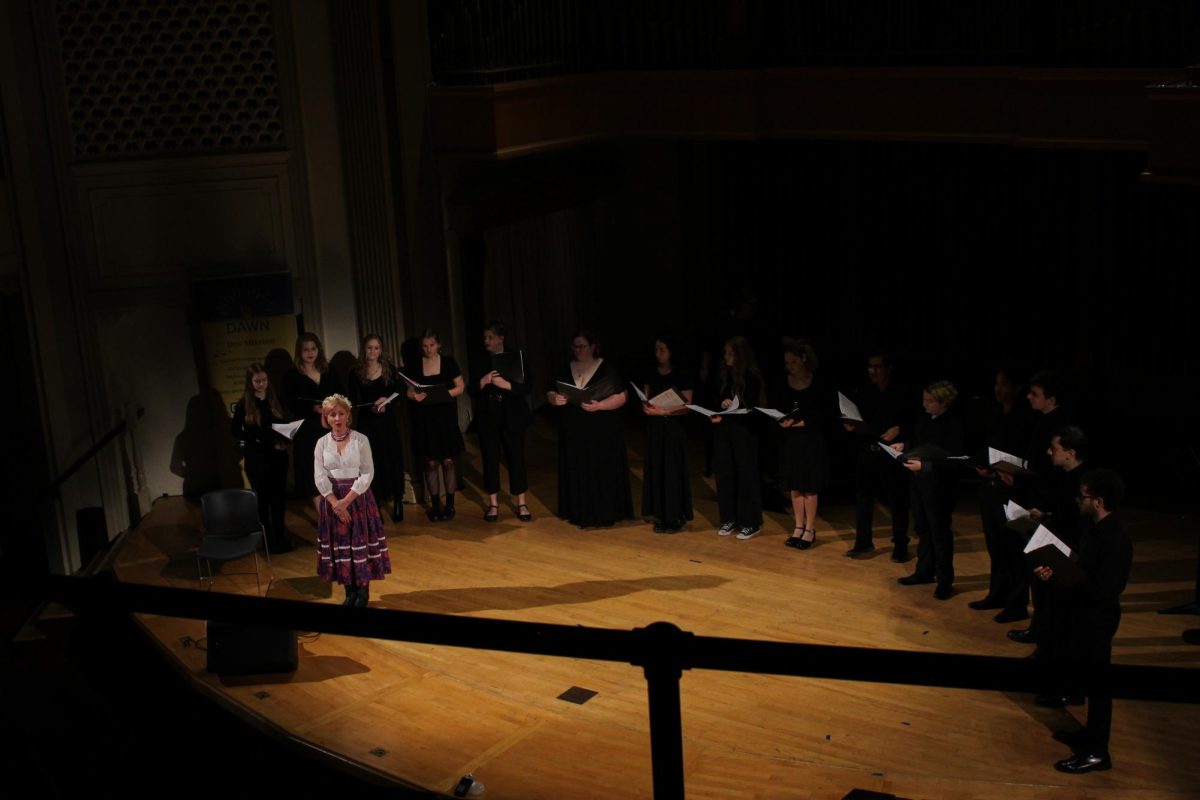The act of voting can be a confusing process, but understanding how people vote has been defined and shared by a guest lecturer.
Zlatan Krizan, associate professor of psychology at Iowa State University, discussed the reality of voting predictability in his talked titled, “Wishful Thinking in Political Elections,” on Oct. 18.
Many can honestly say that they vote the way their family and friends vote. According to Krizen, as humans, we surround ourselves with like-minded people.
“Voting, today, is ultimately social behavior,” Krizan said. “It’s not some sort of isolated incident, it requires people. Voting and who you vote is driven by learned behaviors and social beliefs.”
Another behavior Krizen noticed about voters was the fact that they “are never dispassionate about the future.”
“We always have ideas of what will make a better or worse future,” Krizen said. “So when we predict things, we have an idea of where we want the future to go.”
Hitting on the titled subject of “wishful thinking,” Krizen touches on how correlation does not always equal causation in voting.
“While it is an absolute fact that there is a link between preference and expectation, preferences are not indicative of expectation,” Krizen said.
Krizen worked with the 2010 California marijuana legalization initiative, which initially failed, to measure the correlation between expectation and level of knowledge.
While polling before the November vote, the number of supporters expecting the law to pass was higher than those against the law.
However, as time closed in on the deadline, those against the legalization of marijuana maintained their expectation of the measure failing, while those who supported the measure started to lower their expectation for the measure passing.
“If you want to find an agreement between those in favor and those who are opposed, basically those who are in favor and have higher knowledge eventually become pretty neutral. And those who are against and have lower knowledge ended up in the same place,” Krizen said.
Krizen also determined the most change in support happens during the month of October, prior to the voting deadline.
It is during this time, when polls see a switch from high support to having doubt towards their stance.
“What we see over and over again is that for expectations, we think things are going to go our way, even when they really won’t,” Krizen said.
Krizen’s work has proven that campaigns really do matter. While they don’t necessarily change the minds of voters, it increases expectations.
Kaylyn Peterson / Managing editor
Kaylyn Peterson can be reached at [email protected].






